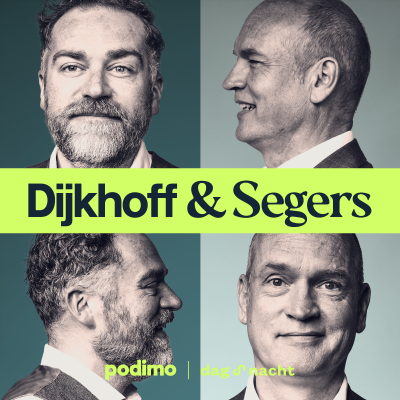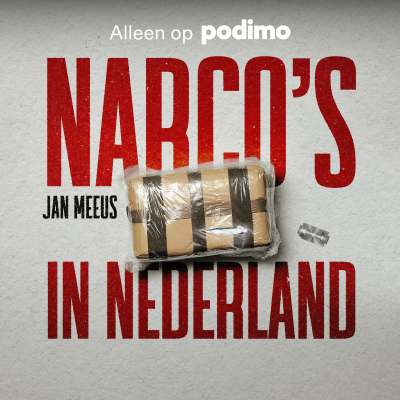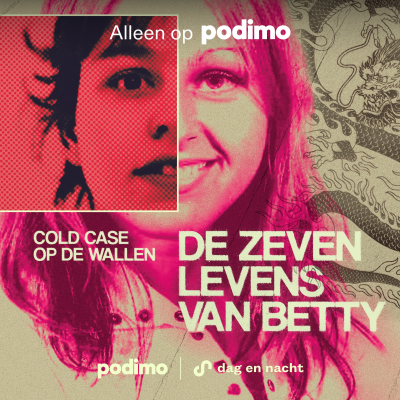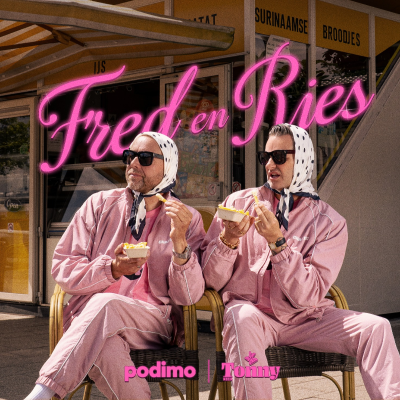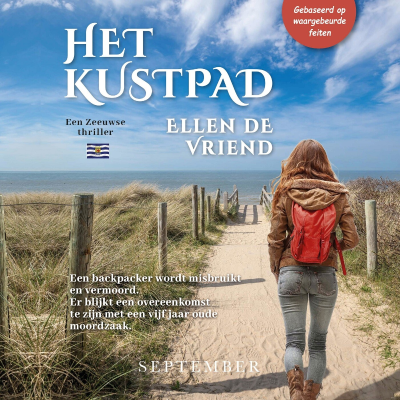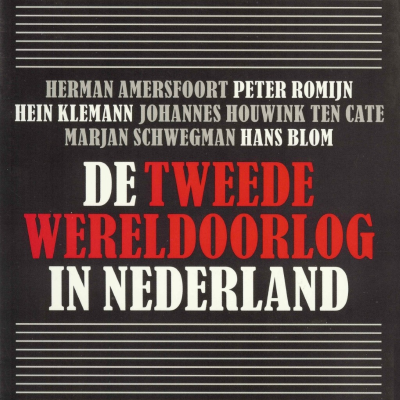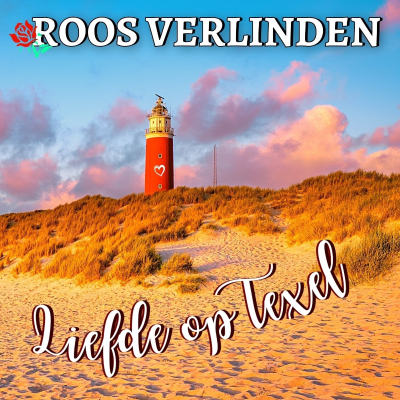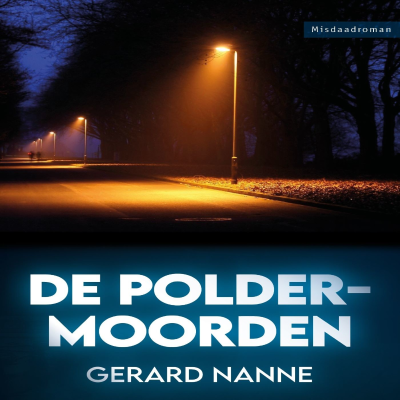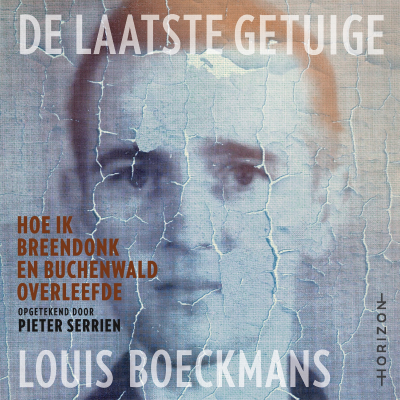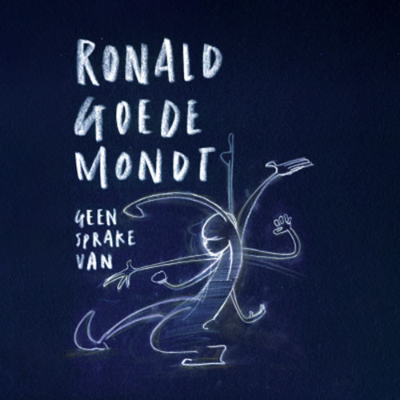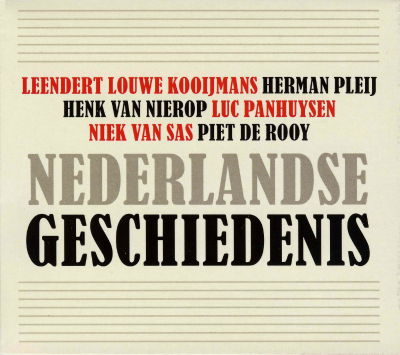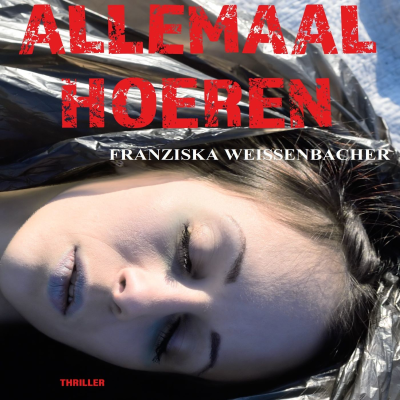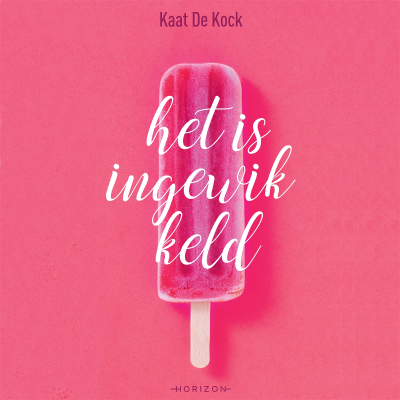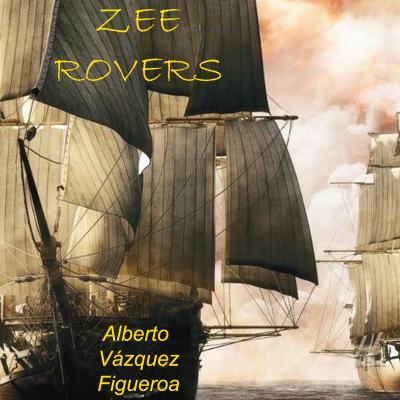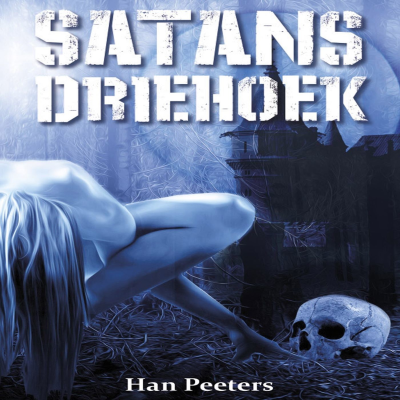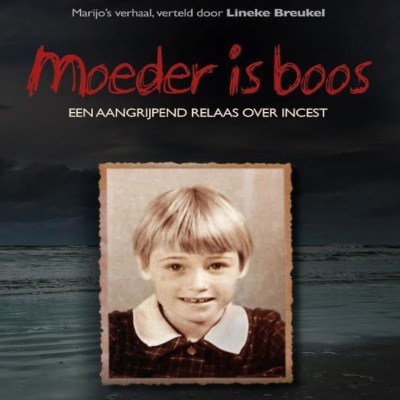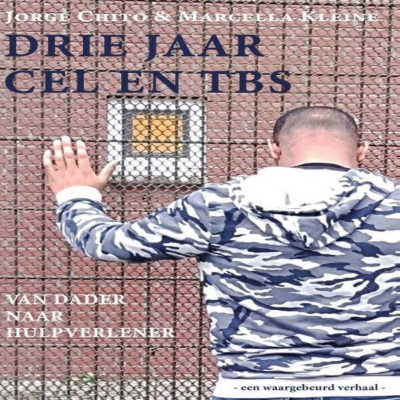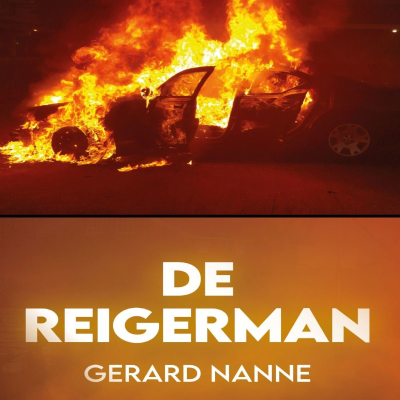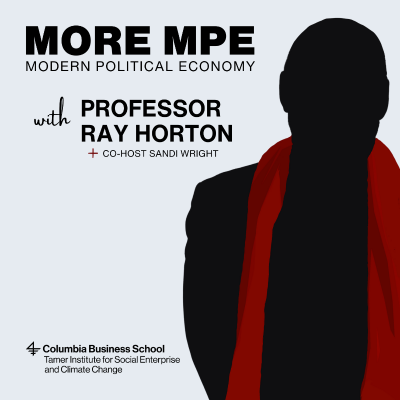
More MPE with Professor Ray Horton and Sandi Wright
Engels
Technologie en Wetenschap
Tijdelijke aanbieding
2 maanden voor € 1
Daarna € 9,99 / maandElk moment opzegbaar.
- 20 uur luisterboeken / maand
- Podcasts die je alleen op Podimo hoort
- Gratis podcasts
Over More MPE with Professor Ray Horton and Sandi Wright
Over the last three decades, thousands of Columbia Business School students have taken part in the elective course, Modern Political Economy. Last year, we took this institution outside of the classroom with More MPE, where host Professor Ray Horton and Columbia Business School faculty casually discussed some of the most current and controversial issues that affect business, government, and society. This season, Ray and his colleague at the Tamer Institute, Sandi Wright, are going outside the building to have conversations with CBS alumni who have pursued extraordinary careers in fields ranging from social services to impact investing to the circular economy, and so much more. These inspiring leaders of social enterprises are making a profound impact in the public, private, and nonprofit sectors not just in New York City, but across the country and around the globe. Throughout the series, you're invited to submit questions that will become part of an in-person Q&A to wrap up the season with Ray and Sandi. More info can be found on: www.morempe.com More MPE is co-hosted by Sandi Wright and produced by The Podcast Consultant. Special thanks to executive producer Hannah Slow and student producers Sofia Martins '26 and Dominica Wambold '26.
Alle afleveringen
23 afleveringenCatalysts for Change: CBS Alumni Shaping the Future of Social Enterprise
In the final episode of the season, hosts Ray Horton and Sandi Wright lead listeners into an engaging live discussion with eight distinguished Columbia Business School alumni, whose careers in social enterprise span industries from climate adaptation to financial inclusion, education equity, and impact investing. Together, they explore critical themes emerging from this season's conversations: * The evolving role of business schools in social enterprise: From experiential learning to incubating nonprofits, alumni share how Columbia Business School shaped their journeys. * Mentorship as a cornerstone of success: Guests reflect on how mentors have guided their careers and the importance of building meaningful relationships beyond networking. * Leadership in illiberal times: Facing challenges like reduced federal funding and political polarization, nonprofit leaders discuss strategies for resilience, advocacy, and coalition-building. This episode is a testament to the power of social enterprise as a force for positive change amidst uncertainty. The alumni share personal stories of impact — from transforming corporate mindsets to empowering vulnerable communities — and offer advice for aspiring leaders navigating complex societal challenges. Featured guests: * Meyer Feldberg Dean Emeritus and Professor at Columbia Business School * Russell L. Carson '67 Chairman of The Carson Family Charitable Trust * R. Glenn Hubbard Dean Emeritus and Russell L. Carson Professor of Finance and Economics at Columbia Business School * Costis Maglaras Dean and David and Lyn Silfen Professor of Business at Columbia Business School * Rohit Aggarwala '00 Chief Climate Officer and Commissioner of Environmental Protection at the City of New York * Phoebe Boyer '93 President and CEO of Children's Aid * Ron Gonen '04 Founder and CEO of Closed Loop Partners * Kaushik Kappagantulu '17 Co-founder and CEO of Kheyti * Lindsay Kruse '06 CEO of All Means All * Mary Jane McQuillen '07 Head of ESG and Portfolio Manager at Clearbridge * Daniel Nissenbaum '88 CEO of Low Income Investment Fund * Justine Zinkin '02 CEO of Neighborhood Trust Financial Partners Key Takeaways: * Business schools can be powerful incubators for social enterprise ideas — guests share how they leveraged courses, competitions, and networks to launch impactful ventures. * Mentorship goes beyond networking; it involves long-term relationships that challenge and inspire growth at pivotal career moments. * Resilience is vital in illiberal times — leaders must adapt through stakeholder management, storytelling, coalition-building, and creative problem-solving. Memorable Quotes: * "Lone wolves don't get very far in social enterprise." – Ray Horton on the importance of mentorship and collaboration. * "We are in the opportunity business." – Phoebe Boyer on creating pathways for vulnerable children through Children's Aid programs. * "Great reputations are built in times of crisis." – Ron Gonen on seeing challenges as opportunities for leadership and innovation. Special Thanks: This episode would not have been possible without support from the Tamer Institute team: Diana Rambau, Hannah Slow, and Sandra Navalli '03. And a special thanks to first-year MBA students, Sofia Martins '26 and Dominica Wambold '26 for all their help throughout the season. Stay tuned for season three as we continue exploring the forces shaping modern political economy with insights from across the Columbia campus! Thanks for listening! Subscribe to More MPE wherever you get your podcasts. Visit morempe.com [http://morempe.com/], or drop us a line at socialenterprise@gsb.columbia.edu [socaboutialenterprise@gsb.columbia.edu]. More MPE is co-hosted by Sandi Wright and produced by The Podcast Consultant [https://thepodcastconsultant.com/]. Special thanks to executive producer Hannah Slow and student producers Sofia Martins '26 and Dominica Wambold '26. Learn more [https://business.columbia.edu/socialenterprise/morempe]
Ron Gonen '04 on Building a Circular Economy Through Leadership and Innovation
In this episode of More MPE, hosts Ray Horton and Sandi Wright speak with Ron Gonen '04, founder and CEO of Closed Loop Partners, a New York-based investment firm composed of venture capital, growth equity, private equity, project finance, and an innovation center focused on building the circular economy. During this engaging interview, we discuss Gonen's career trajectory, and he offers lessons on the transferability of leadership skills across different sectors, from entrepreneurship to government and finance. He stresses the importance of adaptability in leadership styles, particularly in motivating teams across various environments. His experience in the New York City Sanitation Department as deputy commissioner of sanitation, recycling and sustainability taught him valuable lessons about executing for leadership and maintaining high standards of professionalism. Gonen's interview provides valuable insights for current and future Business School students. He emphasizes the importance of having a clear vision and purpose when pursuing an MBA, advising students to tailor their education to their professional goals. Gonen's own experience at Columbia Business School demonstrates how he leveraged the School's resources, including the Greenhouse Program and Lang Fund, to develop and launch his first venture, RecycleBank. He highlights the significance of sales and HR skills, which he believes are often overlooked in top-tier MBA programs but are crucial for business success. For aspiring entrepreneurs, Gonen advises complete commitment to the venture, cautioning against considering other options if truly dedicated to starting a business. He also emphasizes the importance of learning from failures and quickly adapting those lessons to future ventures. For those interested in impact-focused careers, Gonen suggests identifying and maximizing specific skill sets that can complement entrepreneurial ventures. Throughout the interview, Gonen's story underscores the potential for combining social impact with financial success, challenging the notion that these goals are mutually exclusive. Mentioned in this Episode * Ron Gonen '04 Thanks for listening! Subscribe to More MPE wherever you get your podcasts. Visit morempe.com [http://morempe.com/], or drop us a line at socialenterprise@gsb.columbia.edu [socaboutialenterprise@gsb.columbia.edu]. More MPE is co-hosted by Sandi Wright and produced by The Podcast Consultant [https://thepodcastconsultant.com/]. Special thanks to executive producer Hannah Slow and student producers Sofia Martins '26 and Dominica Wambold '26. Learn more [https://business.columbia.edu/socialenterprise/morempe]
Turning Purpose Into Progress: Justine Zinkin '02 on Leading Change in Social Enterprise
In this episode of More MPE, hosts Ray Horton and Sandi Wright speak with Justine Zinkin '02, CEO of Neighborhood Trust Financial Partners, a national social enterprise providing financial services to low-income workers. Born and raised on New York's Upper West Side, Zinkin's journey into social enterprise was influenced by her family's academic background and her parents' diverse experiences. Zinkin joined Neighborhood Trust directly after graduating from Columbia Business School in 2002, initially leading two separate but related organizations: Neighborhood Trust Federal Credit Union and Credit Where Credit Is Due. What she didn't know at the time is that she was inheriting two nearly insolvent organizations. Fortunately, she was able to turn things around by applying some of the things she learned in business school, like turnaround management. Neighborhood Trust has changed a great deal under Zinkin's leadership, evolving from a local nonprofit financed entirely by donations to a national organization that earns 25 percent of its revenues by selling financial consulting services to other organizations. Her growth plans see the Trust financed almost entirely by earned income, with donations limited to serving the organization's research needs. Looking ahead, Justine discusses the challenges facing Neighborhood Trust, including potential changes in consumer financial protections that would threaten the Trust's record of expanding the financial inclusion and empowerment of low-income workers. She closes by encouraging MBA students to pursue social enterprise careers, emphasizing the rewarding nature of applying business skills to solve intractable social problems. Mentioned in this Episode * Justine Zinkin '02 Thanks for listening! Subscribe to More MPE wherever you get your podcasts. Visit morempe.com [http://morempe.com/], or drop us a line at socialenterprise@gsb.columbia.edu [socialenterprise@gsb.columbia.edu]. More MPE is co-hosted by Sandi Wright and produced by The Podcast Consultant [https://thepodcastconsultant.com/]. Special thanks to executive producer Hannah Slow and student producers Sofia Martins '26 and Dominica Wambold '26.
Kaushik Kappagantulu '17 on Empowering India's Small Farmers, Scaling Kheyti, and Rethinking Social Enterprise
In this episode of More MPE, hosts Ray Horton and Sandi Wright speak with Kaushik Kappagantulu '17, co-founder and CEO of Kheyti, a groundbreaking social enterprise. Kappagantulu shares his journey from the conventional career in engineering his parents favored to founding a social enterprise aimed at lifting millions of India's small farmers out of poverty. Columbia Business School played an important, but somewhat atypical role, in the development of Kheyti. The inspiration for Kheyti (also a portfolio member in our Tamer Fund for Social Ventures [https://business.columbia.edu/socialenterprise/initiatives/social-ventures]) was Kappagantulu's recognition that weather changes resulting from climate change were reducing the crops and thus the income of India's already impoverished farmers. In response, he and his colleagues developed a plan whose centerpiece is an easy-to-assemble greenhouse which, combined with other initiatives, would materially increase crop production and incomes. Since Kheyti currently serves 10,000 farmers, scaling the plan is Kheyti's challenge and Kappagantulu's obsession. Among other things, he discusses why Kheyti needs to evolve from a traditional nonprofit funded by donations to a profitable organization funded by earned income; how this will create a market for Kheyti-like services that will attract competitors throughout India; and how the state-by-state government of India government plays an indispensable role in facilitating the transition. Mentioned in this Episode * Kaushik Kappagantulu '17 Thanks for listening! Subscribe to More MPE wherever you get your podcasts. Visit morempe.com [http://morempe.com], or drop us a line at socialenterprise@gsb.columbia.edu [socaboutialenterprise@gsb.columbia.edu]. More MPE is co-hosted by Sandi Wright and produced by The Podcast Consultant [https://thepodcastconsultant.com/]. Special thanks to executive producer Hannah Slow and student producers Sofia Martins '26 and Dominica Wambold '26. Learn more [https://business.columbia.edu/socialenterprise/morempe]
Bridging Academia and Community With Shaba Keys: Insights From a Social Enterprise Leader
In this episode of More MPE, hosts Ray Horton and Sandi Wright speak with Shaba Keys, adjunct faculty at Columbia University's School of Professional Studies Nonprofit Management Program, founder and president of the Bridge Lab, and a dynamic leader in academia and community development. Born and raised in Washington, DC, Keys was deeply influenced by her parents, both educators who championed marginalized communities. This early exposure to civic engagement laid the foundation for her future in social enterprise. After completing her BA at Tufts University and JD from Columbus School of Law, Keys's career took an unexpected turn. Her experiences during law school, particularly working with youth in detention centers, sparked her interest in addressing societal challenges. This led her to the Local Initiatives Support Corporation (LISC), where she gained a national perspective on community development. Keys's work at LISC greatly influenced her career path. At Columbia University, in the offices of Government and Community Affairs and Strategic Initiatives, she focused on developing anchor institution programs and community support initiatives. She emphasizes the importance of collaboration between institutions and community organizations, and her unique position as both a professional and a community member allowed her to build trust and bridge gaps effectively. The interview also highlights Keys's participation in the Tamer Institute's Senior Leaders Program for Nonprofit Professionals, which provided her with new perspectives on leadership and the value of peer learning. Her extensive board service, including roles with the Boys and Girls Club of Harlem and other organizations, underscores her commitment to community development and youth empowerment. Keys concludes with advice for aspiring social enterprisers, encouraging them to maintain hope, embrace innovation, and recognize that there's a place for everyone in social sector work, regardless of their primary field of expertise. Mentioned in this Episode * Shaba Keys Thanks for listening! Subscribe to More MPE wherever you get your podcasts. Visit morempe.com [http://morempe.com/], or drop us a line at socialenterprise@gsb.columbia.edu [socaboutialenterprise@gsb.columbia.edu]. More MPE is co-hosted by Sandi Wright and produced by The Podcast Consultant [https://thepodcastconsultant.com/]. Special thanks to executive producer Hannah Slow and student producers Sofia Martins '26 and Dominica Wambold '26. Learn more [https://business.columbia.edu/socialenterprise/morempe]
Kies je abonnement
Tijdelijke aanbieding
Premium
20 uur aan luisterboeken
Podcasts die je alleen op Podimo hoort
Gratis podcasts
Elk moment opzegbaar
2 maanden voor € 1
Daarna € 9,99 / maand
Premium Plus
Onbeperkt luisterboeken
Podcasts die je alleen op Podimo hoort
Gratis podcasts
Elk moment opzegbaar
Probeer 30 dagen gratis
Daarna € 11,99 / maand
2 maanden voor € 1. Daarna € 9,99 / maand. Elk moment opzegbaar.
